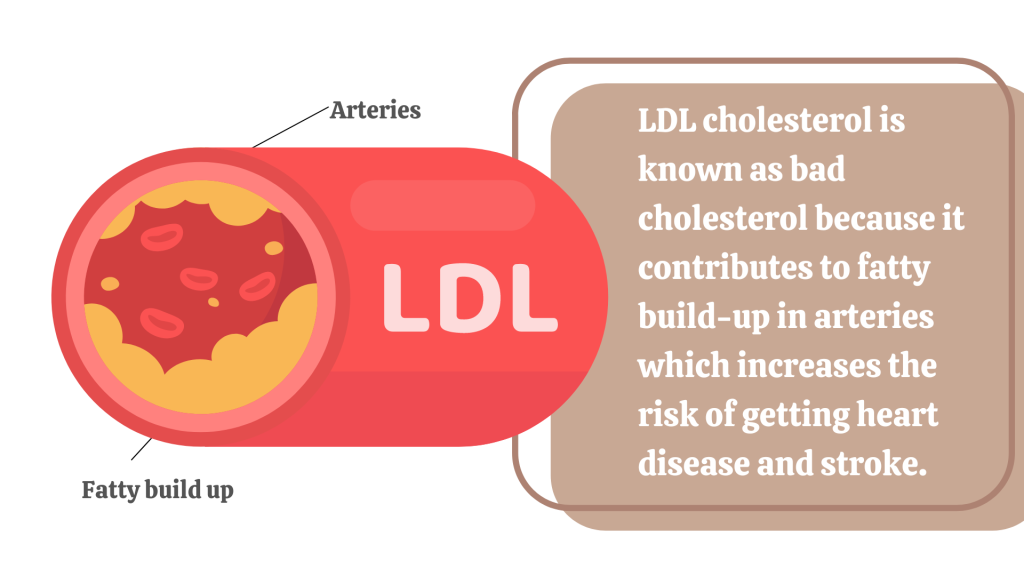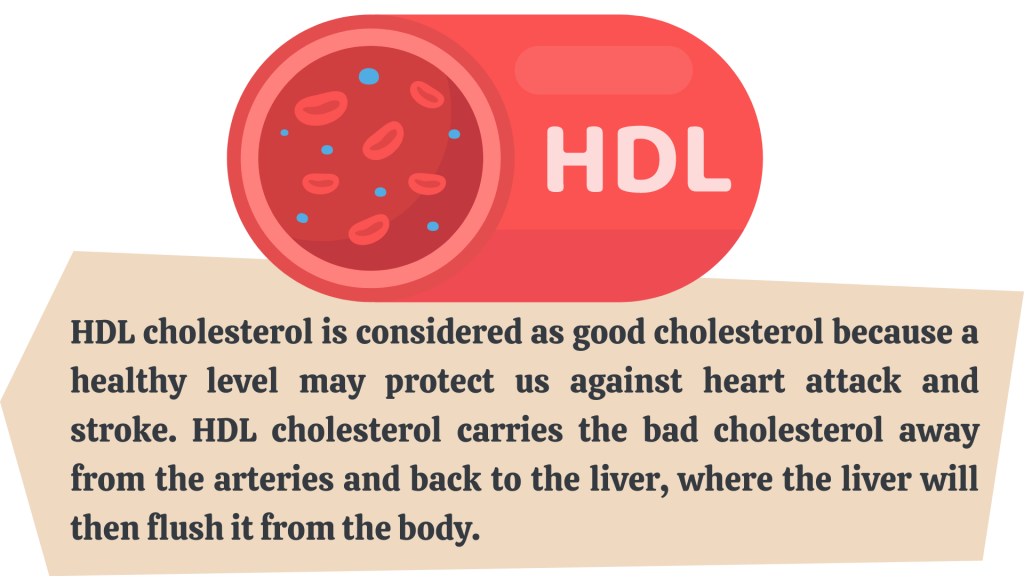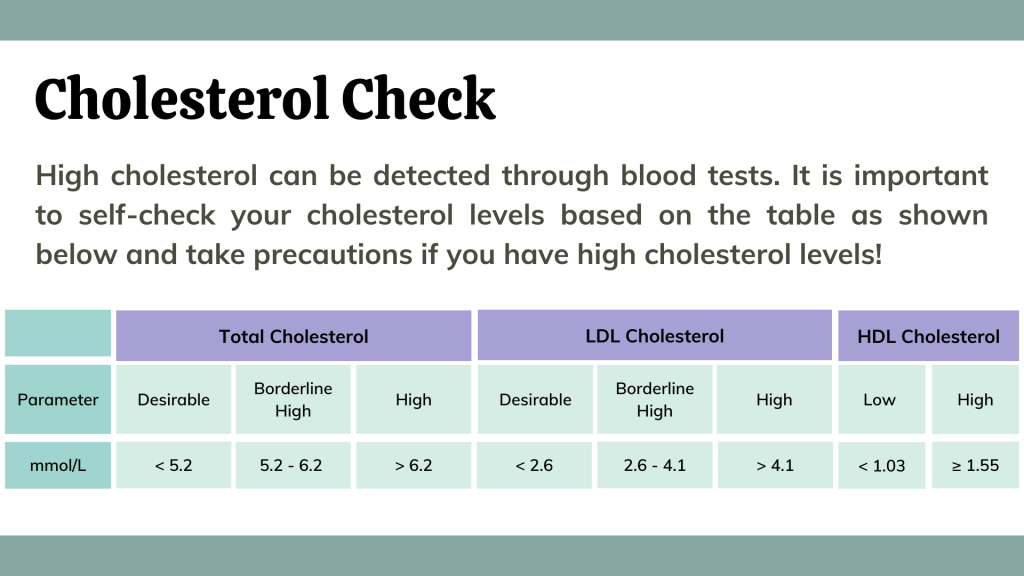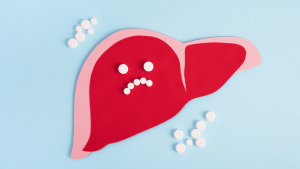Cardiovascular disease is the leading cause of death worldwide [1]. Various studies showed that high levels of LDL-C are associated with increased cardiovascular risk, while reducing LDL levels is linked to a significant reduction in mortality [2]. According to the National Health & Morbidity Survey (NHMS) 2019, 4 out of 10 Malaysians have high cholesterol and 1 out of 4 people were unaware that they have raised cholesterol [3]. Thus, managing your cholesterol levels is the key to protect your heart!
Your Body Needs Cholesterol, But Not Over!
Cholesterol is a waxy fat-like substance. It’s not inherently “bad”, your body uses it to build cells, make vitamins, and produce hormones. But having too much cholesterol can be a problem.
Where Does Cholesterol Come From?
Cholesterol comes from 2 sources:
- Blood cholesterol comes from your liver and it makes all the cholesterol your body needs to support body functions.
- Dietary cholesterol comes from foods you eat, mostly from animal products such as meats, eggs, cheese and milk. Additionally, consuming foods high in saturated and trans fats could cause your liver to make more cholesterol. Having elevated dietary cholesterol can lead to health problems especially cardiovascular diseases.
Hence, diet plays an important role in cholesterol management.
Cholesterol – The Good and The Bad
There are 2 main types of cholesterol:
- Low-density lipoprotein (LDL) also known as “bad” cholesterol
- High-density lipoprotein (HDL) also known as “good” cholesterol
LDL Cholesterol

HDL Cholesterol

Cholesterol Check: Safeguarding Against Heart Disease and Stroke

5 Natural Ways to Improve Your Cholesterol
- Eat a Heart-Healthy Diet
Reduce the intake of saturated fat and trans-fat, for example limiting your intake of red meat and dairy products made with whole milk. In addition, limit fried foods and choose healthy oils such as vegetable oil.
- Be Physically Active
Exercise can help improve HDL cholesterol levels. Practise at least 150 minutes of moderate-intensity aerobic exercise a week.
- Quit Smoking
Smoking cessation can possibly help to lower LDL cholesterol and associated with an increase in HDL cholesterol levels.
- Lose Excessive Weight
Being overweight or obese increases the risk of having elevated bad cholesterol levels. Research showed that weight loss even as little as 5-10% can help to improve HDL cholesterol levels effectively [4].
- Try Supplements
Some supplements may help improve cholesterol levels and promote heart health. Bergamot flavonoids are clinically proven to reduce LDL cholesterol by 29% [5]. BergavitTM is a powder obtained by extracting the main flavonoids contained in the juice of bergamot, grown in Italy. It can support healthy cholesterol levels and cardiovascular health. Interested in this natural approach? Contact us now!
References
- Mensah, G. A., & Brown, D. W. (2007). An overview of cardiovascular disease burden in the United States. Health Affairs, 26(1), 38–48. https://doi.org/10.1377/hlthaff.26.1.38
- Schaiff, R. A., Moe, R. M., & Krichbaum, D. W. (2008). An overview of cholesterol management. American health & drug benefits, 1(9), 39–48.
- National Health and Morbidity Survey 2019 non-communicable diseases, healthcare demand, and health literacy (n.d.). https://iptk.moh.gov.my/images/technical_report/2020/4_Infographic_Booklet_NHMS_2019_-_English.pdf
- Ryan, D. H., & Yockey, S. R. (2017). Weight loss and improvement in comorbidity: Differences at 5%, 10%, 15%, and over. Current Obesity Reports, 6(2), 187–194. https://doi.org/10.1007/s13679-017-0262-y
- Toth, P. P., Patti, A. M., Nikolic, D., Giglio, R. V., Castellino, G., Biancucci, T., Geraci, F., David, S., Montalto, G., Rizvi, A., & Rizzo, M. (2016). Bergamot reduces plasma lipids, atherogenic small dense LDL, and subclinical atherosclerosis in subjects with moderate hypercholesterolemia: A 6 months prospective study. Frontiers in Pharmacology, 6. https://doi.org/10.3389/fphar.2015.00299




